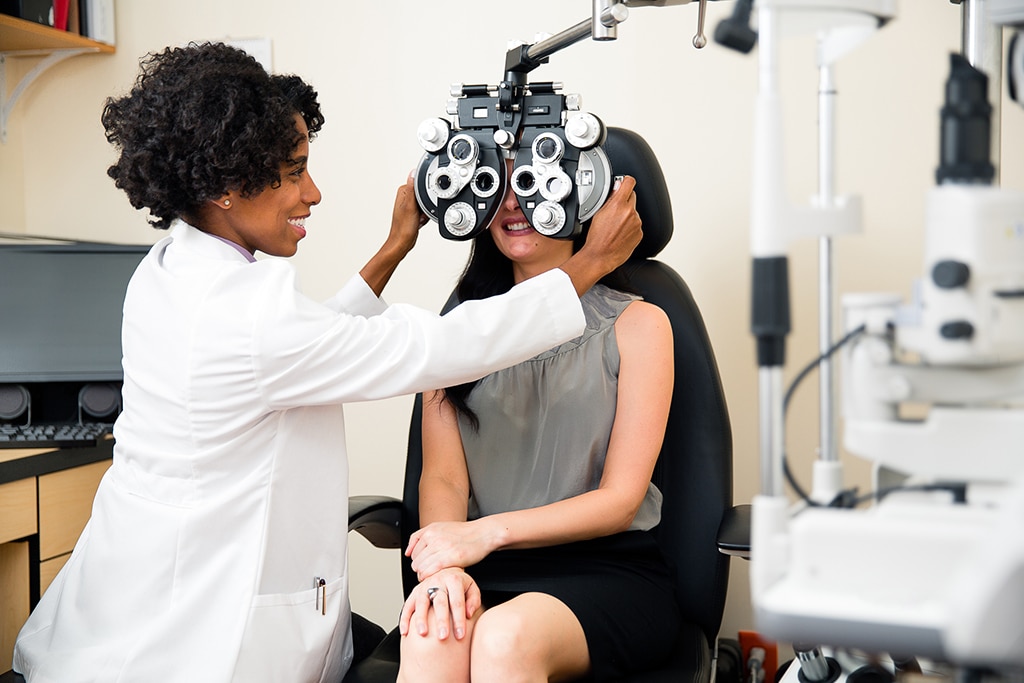Advanced Eye Center of Northwest Florida: Quality in Vision Care
Advanced Eye Center of Northwest Florida: Quality in Vision Care
Blog Article
A Comprehensive Guide to Eye Surgical Procedure Treatments Available at Your Ophthalmologist's Technique
In the realm of ophthalmology, the improvements in eye surgery treatments have actually opened up a world of opportunities for those seeking enhanced vision and eye wellness. From the extensively recognized LASIK eye surgical procedure to the less acquainted Corneal Transplants, the array of treatments readily available at your eye physician's technique can address a range of vision-related concerns. Understanding the nuances of each treatment alternative and exactly how they can possibly transform your vision calls for a better check out the results and details connected with these treatments. Allow's check out the varied landscape of eye surgical treatment therapies that can possibly boost your aesthetic skill and top quality of life.
LASIK Eye Surgical Procedure
When considering vision adjustment procedures, LASIK eye surgery becomes a noticeable option for individuals seeking long-term renovation in their vision. LASIK, which stands for Laser-Assisted in Situ Keratomileusis, is a preferred refractive surgical procedure that intends to remedy typical vision problems such as astigmatism, nearsightedness, and farsightedness. This treatment entails making use of a laser to reshape the cornea, allowing light to be appropriately concentrated onto the retina, leading to clearer vision without the demand for glasses or call lenses.
One of the crucial benefits of LASIK eye surgery is its fairly pain-free and fast nature. The treatment itself usually takes only about 15 minutes per eye, with many patients experiencing improved vision practically instantly. In addition, the recovery time for LASIK is relatively brief, with lots of people able to return to their regular activities within a day or 2.

PRK (Photorefractive Keratectomy)
FIRST SENTENCE:
An additional sophisticated vision improvement procedure comparable to LASIK is PRK (Photorefractive Keratectomy), supplying effective solutions for people looking for options to standard glasses or get in touch with lenses. PRK is a procedure that improves the cornea using an excimer laser to correct refractive mistakes such as nearsightedness (nearsightedness), hyperopia (farsightedness), and astigmatism. Unlike LASIK, PRK does not entail producing a flap on the cornea; rather, the outer layer of the cornea is gently gotten rid of prior to the laser therapy. This makes PRK an appropriate option for people with thin corneas or those involved in tasks where the risk of eye injury is higher.
The healing duration for PRK is longer contrasted to LASIK, as the outer layer of the cornea requires time to restore. Clients might experience discomfort and fuzzy vision during the first healing stage, but vision progressively improves over numerous weeks. Your ophthalmologist will certainly supply comprehensive post-operative treatment guidelines to ensure a smooth recuperation process and ideal visual end results.
Cataract Surgical Treatment
Cataract surgery, a typical procedure carried out by ophthalmologists, includes eliminating the over cast lens within the eye and changing it with a clear fabricated lens implant to restore vision clarity. Cataracts occur when the natural lens of the eye becomes cloudy, resulting in obscured vision and trouble seeing plainly. Throughout cataract surgical Learn More procedure, the eye doctor makes a tiny incision in the eye and uses ultrasound technology to damage up the gloomy lens, which is then gently suctioned out. When the cataract is eliminated, the man-made lens, called an intraocular lens (IOL), is put to change the natural lens's function. This IOL helps to focus light onto the retina, improving vision. Cataract surgery is usually executed on an outpatient basis and is known for its high success price in improving vision and quality of life for individuals. It is important to consult with your eye physician to determine if cataract surgical treatment is the right alternative for you based upon your specific eye wellness needs.
Corneal Transplants
Corneal transplants, likewise called corneal grafts, are surgeries that entail replacing damaged or unhealthy corneal tissue with healthy and balanced donor cells to boost vision and minimize corneal problems. This procedure is normally recommended for individuals with corneal scarring, thinning, or various other corneal diseases that can not be treated properly with other methods such as medicine or call lenses.
During a corneal transplant, the ophthalmologist gets rid of the main portion of the damaged cornea and changes it with a donor cornea. This contributor tissue is very carefully selected, evaluated, and saved to guarantee compatibility and lower the risk of being rejected. Corneal transplants can recover vision, reduce pain or pain, and improve the look of the eye.
There are various kinds of corneal transplants, including full-thickness transplants (permeating keratoplasty) and partial-thickness transplants (such blog as endothelial keratoplasty or former lamellar keratoplasty), with the choice depending upon the specific condition being dealt with. After the surgery, individuals require close post-operative like check healing and stop problems.
Retinal Detachment Surgical Treatment
Adhering to effective corneal transplants, another important eye surgery procedure that might be necessary for certain people is retinal detachment surgery, a fragile procedure aimed at recovering the retina's correct position to protect vision and avoid further problems (eye care panama city fl). Retinal detachment takes place when the retina, the slim layer of cells at the back of the eye accountable for catching light and sending out visual signals to the mind, draws away from its normal position. This separation can result in vision loss otherwise immediately resolved through surgical treatment
During retinal detachment surgical treatment, the eye doctor works to reattach the retina to the back of the eye. The objective of the surgical procedure is to avoid vision loss and recover or improve vision if possible.
Verdict

In the world of ophthalmology, the improvements in eye surgical treatment therapies have actually opened up a world of possibilities for those looking for enhanced vision and eye health. From the extensively recognized LASIK eye surgery to the much less acquainted Corneal Transplants, the array of treatments readily available at your eye physician's method can deal with a selection of vision-related concerns. It is important to seek advice from with your eye physician to identify if cataract surgery is the right choice for you based on your specific eye health and wellness demands.
Complying with successful corneal transplants, another important eye surgical treatment procedure that might be necessary for particular individuals is retinal detachment surgical procedure, a fragile operation aimed at recovering the retina's proper go placement to preserve vision and stop additional difficulties.In final thought, there are numerous eye surgery therapies available at your eye physician's method, consisting of LASIK, PRK, cataract surgical procedure, corneal transplants, and retinal detachment surgical treatment.
Report this page